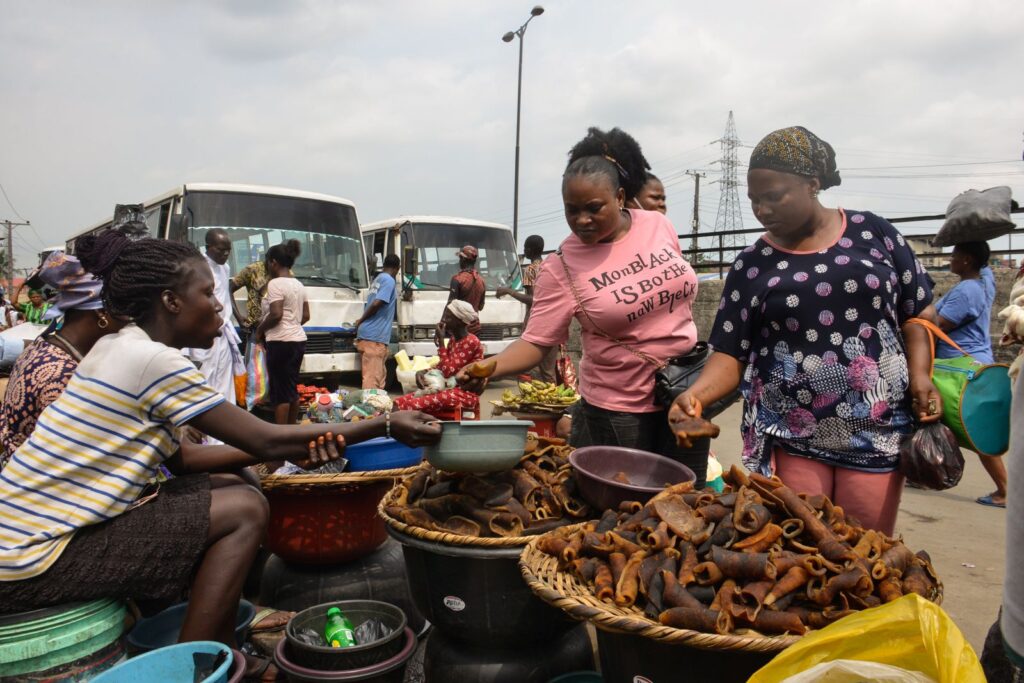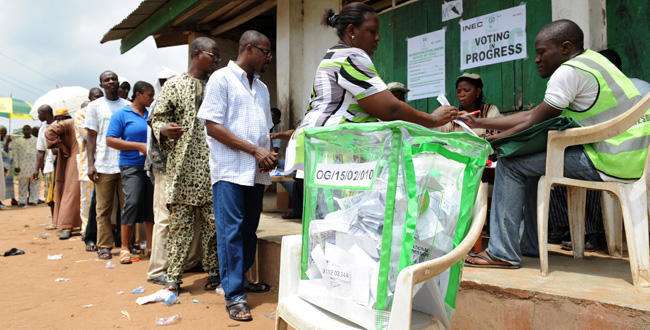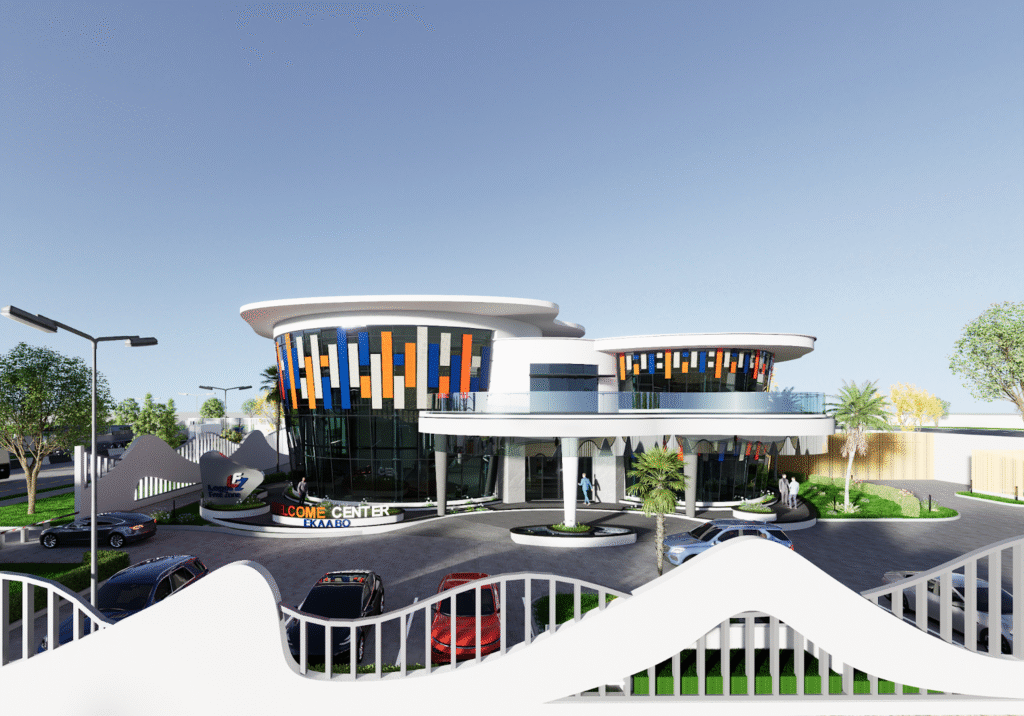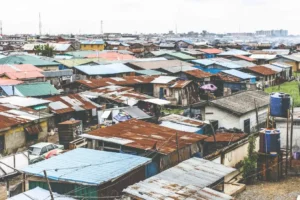
Port Harcourt, Nigeria – July 2025 – Long before the sun rises, the sound of plastic buckets, rusted wheelbarrows, and distant prayer calls fill the air in Mile 3 Market. Among the early risers is Mama Nkechi, a 49-year-old vegetable seller who has worked this stall for over two decades. Her life, like that of countless Nigerian market women, is a daily dance between hustle, hope, and hardship — a reflection of the resilience that powers local economies across the country.
The Daily Hustle Begins Before Dawn
By 4:30 a.m., Mama Nkechi is already on her way to the waterfront to collect her consignment of fresh ugu, okra, and garden eggs. After a brief negotiation with transport boys and a hasty prayer, she sets up her stall under a blue umbrella, arranging her goods with practiced speed.
“Na first people dey buy well,” she says with a tired smile. “If you come late, you go carry your load back.”
Her day stretches until sunset. Between haggling with customers, avoiding area boys, and keeping an eye on the weather, she barely has time to eat. Yet, she remains cheerful — even when power outages or transport strikes threaten her daily earnings.
Balancing Family, Business, and Inflation
Behind her stall lies another world — that of a mother, wife, and sometimes breadwinner. Mama Nkechi supports three children through secondary school. One is learning tailoring; the other two help her at the market when school is out.
But with rising inflation, even basic food items have become luxury goods. “Last year, I dey buy a bag of pepper for ₦12,000. Now na ₦22,000,” she says. “Customers go shout say your price high, but dem no sabi say we sef dey struggle.”
Fuel hikes, insecurity on rural roads, and unstable naira rates have all pushed small traders to the brink. Many, like Mama Nkechi, have resorted to taking daily loans from market cooperatives just to keep their tables stocked.
Sisterhood in the Market
In a space where the government is distant and the systems unreliable, market women rely on each other. They form contribution clubs, help one another during illness, and even provide free childcare for nursing mothers.
“We no get pension, we no get insurance,” says Mama Amina, a fish seller nearby. “Na we dey support ourselves.”
In the absence of formal safety nets, these informal networks have become essential pillars of survival and emotional support.
Facing Harassment and Neglect
Market women also endure daily harassment — from touts demanding illegal levies to occasional police raids targeting street trading. Many stalls lack shade, clean water, or toilets. Despite paying regular dues, little to no infrastructure support comes from local authorities.
“When election time reach, dem go promise build shade and toilet,” Mama Nkechi recalls. “After vote finish, na so everything go quiet.”
Yet, they continue — not because they’re blind to the injustice, but because their survival depends on it.
Dreams for a Better Tomorrow
Despite the grind, market women remain hopeful. Mama Nkechi dreams of expanding her business and opening a small grocery shop with a refrigerator. She wants her children to live a life where their income isn’t tied to weather, fuel prices, or daily physical struggle.
“If my pikin fit go university, if e get work for office, I go rest small,” she says quietly, wiping sweat from her brow.
Their Struggle Is the Nation’s Backbone
The story of Nigeria’s market women is not just one of poverty or survival — it is a story of entrepreneurship, grit, and economic relevance. They fuel daily commerce, support entire families, and hold up communities.
In their voices, we hear not just hardship, but dignity. In their hands, we see not just goods — but the strength of a nation built from the ground up.
Behind every tomato basket and pepper pile is a story worth hearing. And it’s time we start listening.










